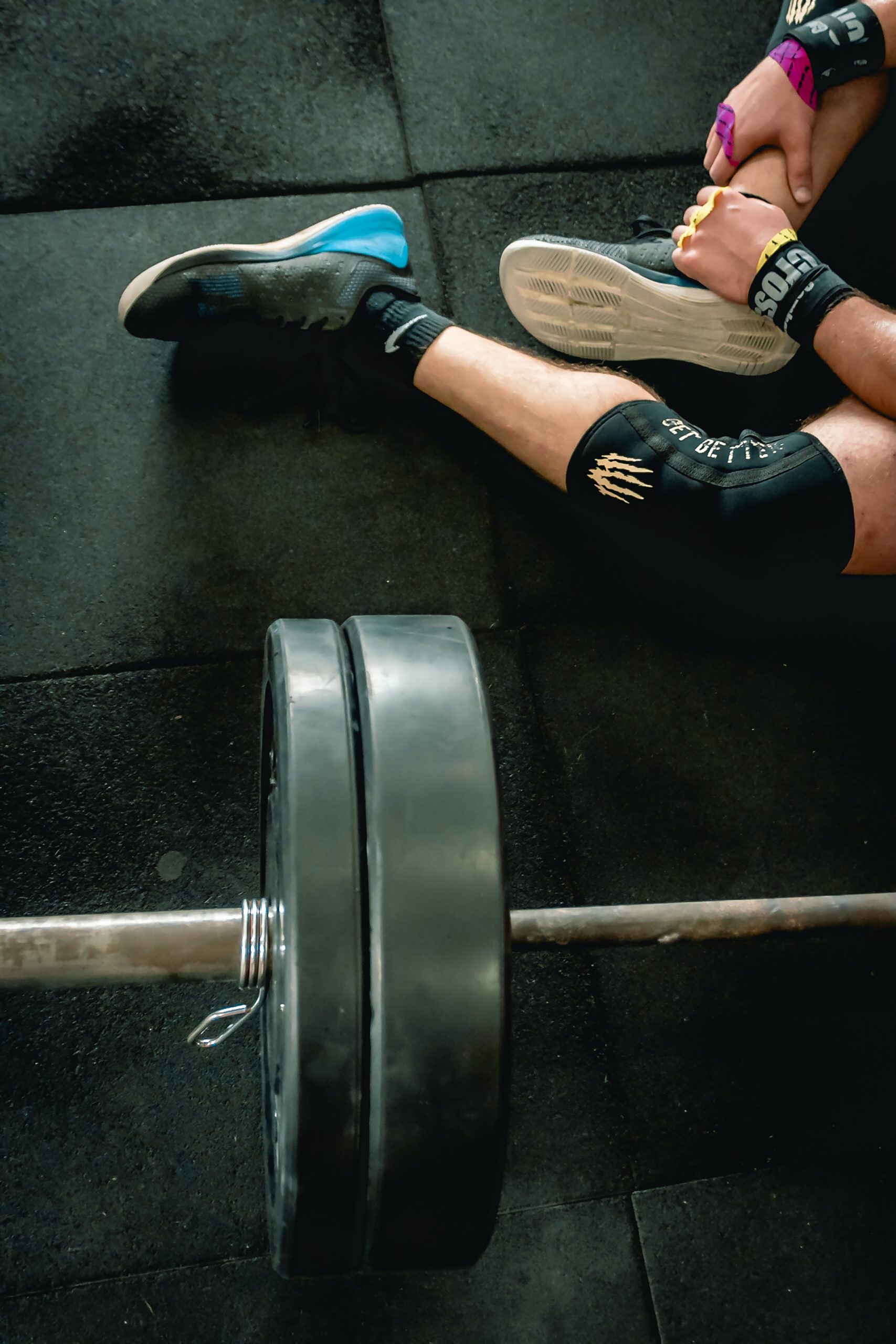Symptoms Of Overexertion and How To Protect Yourself Against It

If you have a job that needs you to be on the move or you are a competitive athlete, then you are probably aware of the hard work. Various kinds of jobs and hobbies require a person to have some continuous and repetitive activities, and it can lead to overexertion.
The overdoing of a particular activity continuously can be stressful on your mind and body sometimes. This overdoing of activity can lead to burnout and thus result in overexertion.
Overexerting the body and mind can result in discomfort, pain, and even in some cases, injury. This makes it essential for a person to respect the limits of their body and listen to the need of the body.
The good news about this problem is that you can protect your body against overexertion. In the below, we will tell you the various overexertion symptoms and cause along with ways to avoid them.
What Is Overexertion?
When we look for overexertion definition, it’s a condition where you push your limits too hard. This involves mental and physical efforts that are above the current body abilities.
Now when you know the overexertion definition, let’s look at some factors on which it depends:
- Age
- Workplace conditions or needs and environmental factors like temperature.
- Medical history
- Particular task or activity which requires repetition of a specific movement or work.
Due to all these factors, various people can feel overexertion symptoms at some point. This is because every person has their mental and physical limits.
The overexertion in a person can sometimes result in severe injuries. These are:
- Sprains
- Strains
- Fractures
Such burnout injuries can even limit a person’s future abilities to do that activity.
What Causes Overexertion?
The causes of burnout are various, although it is correlated with some motions and activities. Some of the most common causes are:
Repetitive Movements
When we indulge in a particular activity that requires motion of a specific muscle or joint for long periods, it can lead to overtraining. This can further put a strain on the body resulting in discomfort and pain.
Repetitions of the movement by a person are often in relation to some activities. These are:
- Writing or typing regularly
- Ball throwing, kicking, or hitting it
- Playing or use of musical instruments
- Use of mouse on a computer regularly
- Working as an assembly line worker
- Sports training
- Knitting or continuous sewing
These are some of the common repetitive movements which can lead to overexertion.
Incorrect Technique
Doing an activity like an exercise improperly can lead to stress on the body. It can specifically put stress on joints, muscles, connective tissues, and bones and result in burnout injuries.
Some examples of the incorrect techniques are:
- Sitting for long periods in a poor posture.
- Use of wrong move or form while exercising
- Use of wrong equipment or gear for an activity like using back supportless chairs.
- Lifting of weights improperly
- Standing for a long period in an incorrect position
- Not wearing gear like knee pads when kneeling
These are some of the examples of incorrect techniques that may lead to burnout physically.
Instant Movement Of Body
If you are using the incorrect technique for a particular activity and do instant movements, it can cause overexertion. Instantaneous body movements while using the wrong technique can lead to injuries.
Some examples of abrupt movements that can cause injuries are:
- Twisting of body
- Pushing something
- Throwing a ball or object
- Bending
- Pulling, specifically heavyweight
- Reaching
Such sudden movements of the body can result in overexertion injuries like tissue tears or pain.
Prolonged Activity
If you are doing a particular movement or activity continuously without proper breaks in between, it can lead to fatigue. Regular physical effort without a break in between can take a toll on the body and put stress. This, in turn, can result in the overtraining of a particular muscle or joint.
Prolonging activities might be in relation to the following:
- Overtraining for fitness or a sport.
- Doing an exercise in repetition for too long a time or days without any variation or breaks.
- Focusing on a particular cognitive activity for a long period can result in mental burnout. For example, continuous studying for long hours may lead to mental overexertion.
These are some examples of prolonged activities that might lead to overtraining in the body.
Acute Temperatures
Extreme temperature can also be a cause for overexertion in a person. This is because when there are acute temperatures like extreme cold or hot, it puts pressure on the body. This pressure on the body is to maintain normal body temperature. Due to this overpressure on the body, a person needs to push harder comparatively for even basic activities.
Some examples of the overexertion activities due to temperature are:
- Manual labor outside in the open
- Exercising in the open like running.
Extreme temperatures also lead to fatigue, making even regular activities harder.
Overexertion Symptoms
If you have overexerted your body, then you will experience some of the following signs:
Pain
Pain is the first sign of burnout. You may feel an achy or sharp pain in the parts of your body. It may also feel like tingling, pinching, burning, or throbbing.
If you are doing a specific activity and feel the pain, you must stop the activities and take a break. You must also consult a health professional or doctor if the pain gets worse or continues.
Overusing Injury
An injury due to overuse of a body part doesn’t develop or show instantly, but it develops gradually. Some of the examples of the injuries due to overtraining are:
- Tennis elbow
- Carpal tunnel syndrome
- Hairline fractures or stress fractures
Overexertion symptoms due to overuse include:
- Tingling
- Stiffness
- Pain
- Numbness
- Weakness in the area affected
These signs of the overuse injury might be felt while doing a specific activity. Thus you must be careful when doing repetitions of an activity.
If you feel any of the overtraining injury symptoms, consult a doctor for treatment before the condition worsens. Treatment of the overuse injury involves the following:
- RICE treatment
- Injection of steroids
- Exercising for strengthening the specific area
- Securing the area with a brace or splint
- Changing of the techniques, like avoiding the positions which overexert the specific area.
- Medicines for reduction of pain and inflammation.
Fatigue
Another overexertion symptoms include fatigue. This can be mental, physical, or both. It depends on the cause.
Some signs of physical fatigue include:
- Even while doing a low-intensity workout feeling of ‘heavy’ limbs
- Poor performance in physical activities
- Persistence in soreness
- Slow recovery after the training
Mental overexertion symptoms include the following:
- Brain fog
- Increase in anxiety or stress
- Depression
- Difficulty in concentrating
- Instant mood swings
In both cases, whether you have physical or mental burnout, take a break from the activity. Take rest and add some healthy habits into your lifestyle like:
- Add nutritious snacks and meals to your diet
- Stay hydrated
- Get good sleep
- Go for mild forms of exercise or take regular breaks in between
Increase In Sickness Frequency or Injuries
Overtraining the body can lead to slowing down the process of healing after strain full activities. Repetition of a particular activity that stresses the body can also lead to a decline in immune system capacity. Thus overexertion can lead to sickness and injuries.
If you keep getting injured easily like a muscle strain or joint pain or feel fatigued, it’s time for a break. Following healthy eating habits and getting proper rest is also a good way to help your body recover.
Air Hunger
If you feel difficulty in breathing during physical activity, reduce the intensity. This is essential as intense physical activity may sometimes lead to air hunger and, thus, problems.
Take deep breaths and avoid holding the breath to help your body to get the oxygen they require. Deep breathing is also a good way to help your body relax.
How To Prevent Overexertion?
There are various ways to avoid overexerting yourself, both mentally and physically. These include:
Avoiding Physical Overexertion
- Warm-up before exercise
- Take regular breaks after every 30 minutes, specifically if you stay in a particular position for long.
- Do joint exercises like the wrist exercise to strengthen your joints.
- Learn proper techniques. Ask for expert guidance whenever in confusion.
- Lift heavy weight using your legs and not the back.
- Put variations in your routine to avoid overtraining and repetition of a particular exercise.
- At least include one day of rest in a week between your exercise routine.
- Gradually increase your level of physical activity. Don’t go for sudden movies or an increase in intensity as it may result in injury.
- Take rest before stressful activity and repetition of a particular move.
Avoiding Mental Overexertion
- Delegate responsibility and tasks. For example, divide the household work and child care work between you and your partner.
- Schedule break between the work. Take vacations or weekends to clear up your mind and give it some rest.
- Exercise on a regular basis. Regular exercising has proven in many studies to be effective in stress management. You also don’t need to go for heavy exercises, and even a walk for 20 minutes will suffice.
- Try some relaxation techniques like yoga, breathing exercises, or tai chi.
- Get proper sleep as it is an essential thing for the proper functioning of the body, both mentally and physically.
- Seek professional help. If you feel like you are overstressed, consult your doctor or a therapist.
These are some of the methods which you can try to avoid burnout on both mental and physical levels. The good thing is that most of the methods can be tried by yourself without anyone’s help. Although in severe cases, professional help is required.
Takeaway
Overexertion generally happens due to the repetition of movements, prolonged efforts, or instant movements. It can also be related to other things like using the wrong exercise technique or working in acute temperatures.
Overexertion can lead to many health problems like fatigue, joint injuries, pain, and mental fog. However, you can easily cope up with the problem of overexertion by using some simple techniques like getting good sleep.






